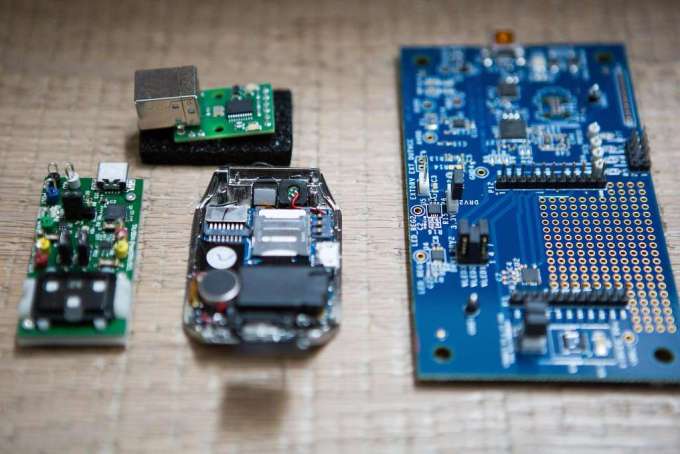
For Ryan Howard, the sudden death of his friend from an undetected heart condition late last year led to the idea for a new product he wished could have saved the 40-year-old’s life.
Howard, 41, had recently left Practice Fusion, the San Francisco electronic medical records company he founded a decade earlier, and wasn’t planning to go back into health care. But grief, combined with a lifelong fear of dying in his sleep, proved to be powerful motivation.
His new startup, iBeat, announced last week that it raised $1.5 million to build a life-saving, heart-monitoring smartwatch. It’s the first monitoring watch that goes into action if your heart stops or you are otherwise incapacitated. If it detects problem, it calls paramedics and simultaneously alerts your emergency contacts.
“If you’re out cold, that’s where we kick in,” he said. “No one else does this.”
With about 10,000 Baby Boomers turning 65 every day and the U.S. Census Bureau estimating that a quarter of the population will be older than 60 by 2030, finding technology that helps people continue living at home as long as possible has become big business.
Many companies already offer various types of medical alert systems, including Life Alert, Philips Lifeline and Alert 1. But they’re facing more competition as others enter the market.
GreatCall in San Diego acquired San Francisco’s Lively last year and in April introduced a device that can be worn as a watch or pendant and syncs with a smartphone. Better Alerts has teamed with Redwood City’s Pebble to offer a combined smartwatch and medical-alert device.
While some of these products are designed to be more stylish than the traditional alerters, Howard said there’s a reason people are reluctant to wear a monitoring device: “It looks like a dog collar. It dehumanizes them and makes them look and feel sick.”
San Francisco industrial design firm Ammunition Group, which is also an investor in iBeat, is helping to design the watch. Howard’s company is aiming at the 50- to 70-year-old market, a younger demographic than traditional medical alert devices.
Howard said iBeat’s features will set it apart. The device will track heartbeat and contact the user if activity suddenly stops or becomes unusual. If the user does not respond, it will kick into higher gear by contacting emergency responders from a dispatch center in Oregon.
“It’s very subtle, day-to-day, interacting with you,” Howard said. “But if you have an emergency, it gets very excited.”
Many wrist-worn heart monitors have come on the market, but have been plagued by questions of precision. Fitbit of San Francisco is facing a class-action lawsuit over accuracy claims it made about its PurePulse heart-rate monitoring technology.
Although the iBeat watch is still in development, the technology and algorithms to track changes in heartbeat make it easier to create than a wristband that accurately monitors heartbeats, said Scott Amyx, an expert in wearable technology. The focus on abrupt changes is a selling point as well.
“Having a very special, poignant, urgent-use case is very compelling,” said Amyx, chief executive officer of Amyx+, a San Francisco consulting firm. “It’s not a nice-to-have. It’s something that is medically needed and, in some cases, may be prescribed by medical doctors.”
The new device is more likely to have problems with false positives than false negatives — such as the watch registering a lack of heartbeat due to a technological issue — but Amyx said he believes such issues could be worked around. He also said he has faith in Howard, given his proven track record of success.
While he was reportedly squeezed out of Practice Fusion, Howard said he left because he had a “different vision” of where the company should go. But he built the company from an idea to become the largest physician-patient records repository in the country, managing data from an estimated 100 million patients and used by more than 112,000 active health providers each month.
Maveron, Subtraction Capital, and Correlation Ventures are leading iBeat’s seed round. Other investors include Code.org founders Ali and Hadi Partovi, NFL offensive tackle Russell Okung, KKR founding partner Henry Kravis and Band of Angels.
Funding will go into developing the product, which Howard hopes will be available by June. The device is expected to cost about $200. IBeat’s monitoring fee is tentatively priced at $20 a month.
And it will all be worth it the first time the alert goes off, Howard said.
“I believe the day we release is the day we will save someone,” he said.
Refer to the full article on San Francisco Chronicle. Published on August 7, 2016. Author Victoria Colliver.


















